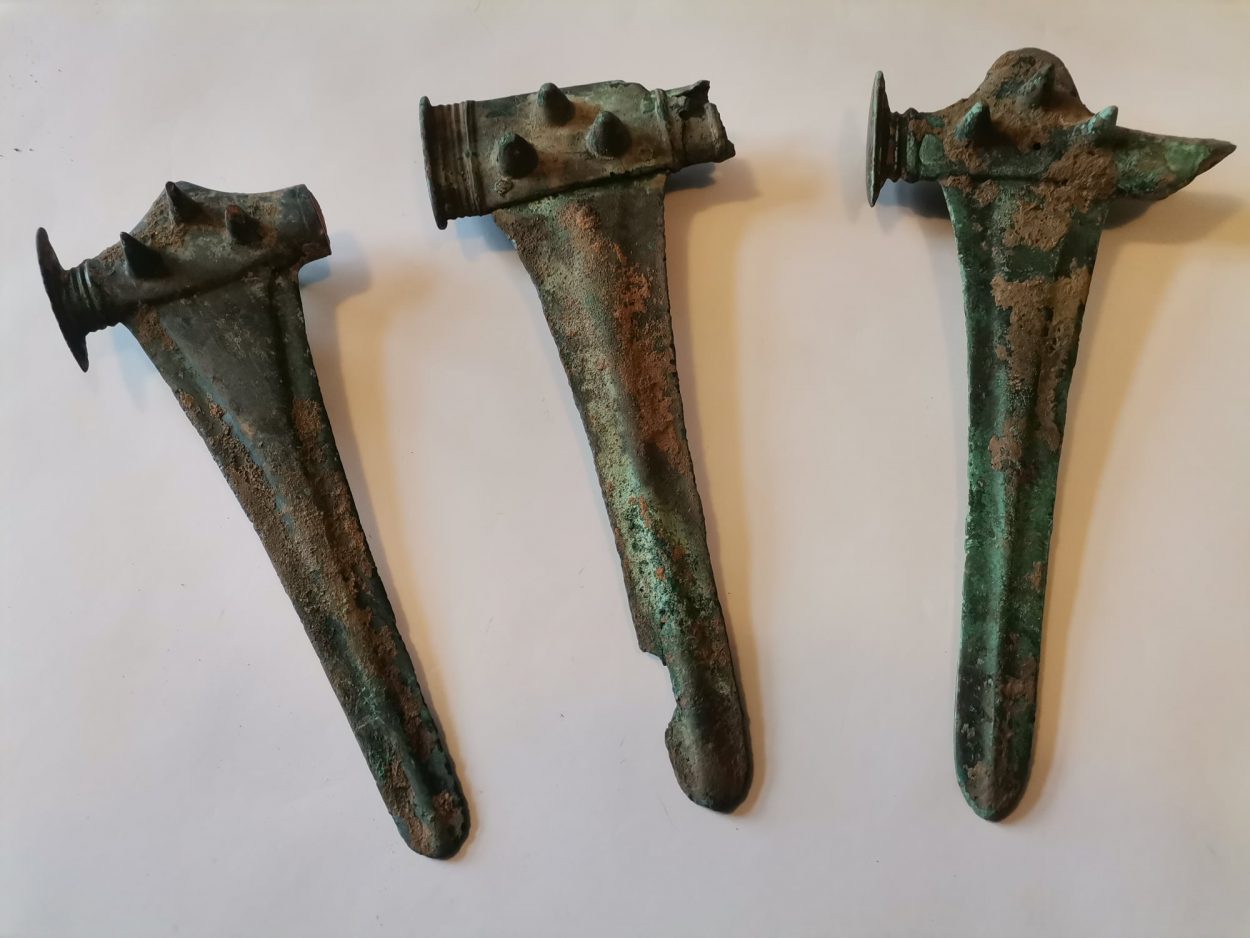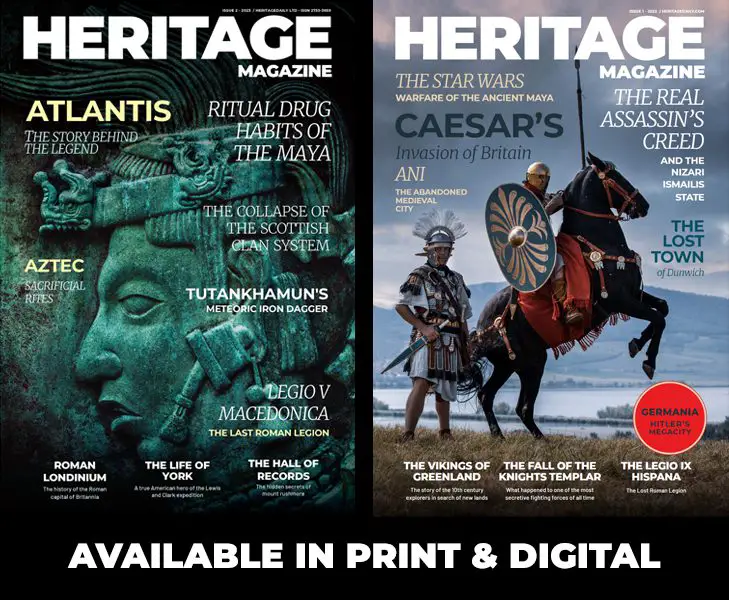Rare treasures from the Únětice culture have been unearthed by a farmer during agricultural works in the Sulęcin county of Poland.
The Únětice culture, also called the Aunjetitz culture, emerged at the start of the Central European Bronze Age, dated roughly to about 2300–1800 BC.
Únětice sites have been identified across the Czech Republic, Slovakia, Germany, and Poland, and are distinguished by their distinct metal objects.
Upon discovering the treasure deposit, the farmer contacted the relevant authorities, resulting in an archaeological assessment and excavation. Researchers recovered three sceptres, three bronze daggers, a hatchet, a chisel, and several associated metal artefacts.

Norbert Burzyński from the delegation of the Provincial Office for the Protection of Monuments in Gorzów Wlkp said: “It is worth emphasising the exemplary attitude of the finder, who immediately notified the relevant authorities and did not conduct further activities that could lead to the destruction of archaeological monuments and the cultural layer”
Archaeological evidence suggests that the Únětice metal industry, though active and innovative, was concerned with producing weapons and ornaments mainly as status symbols for high-ranking individuals, rather than for equipping soldiers or for widespread domestic use.
Depositing of high-status metal objects may have been instigated as a form of storage by itinerant Bronze Age people, or as riches hidden because of enemy action and times of conflict.
This is the second hoard to be discovered in the region recently. Earlier this year, archaeologists recovered 220 bronze items placed in a broken vessel that dates from the Lusatian culture (1300 – 400 BC).
Header Image Credit : Lubuski Wojewódzki Konserwator Zabytków







